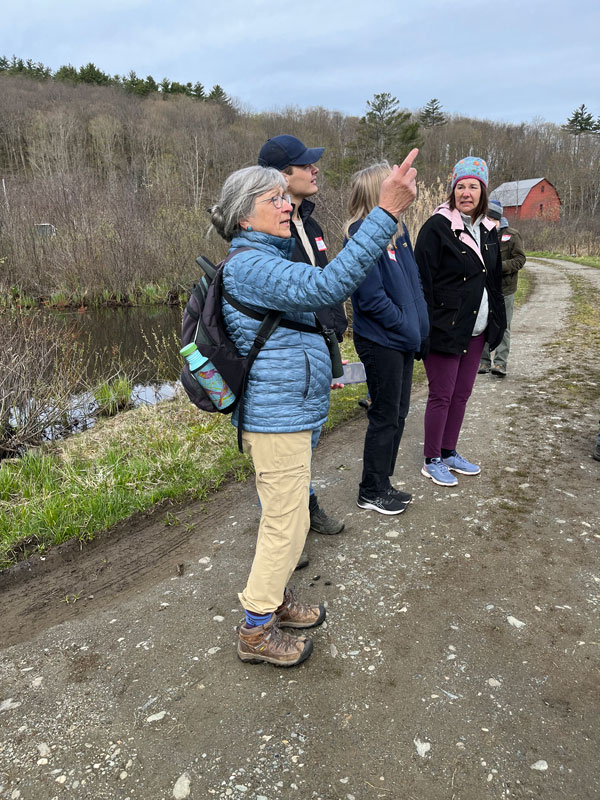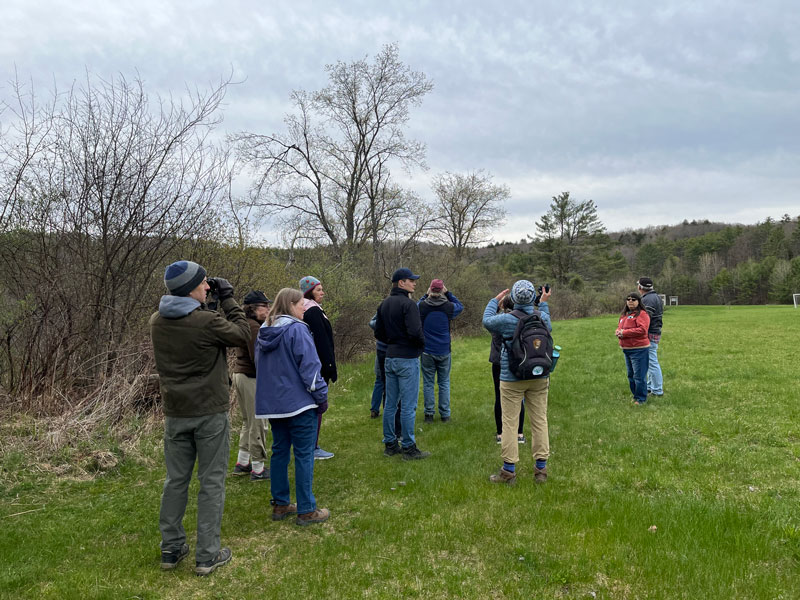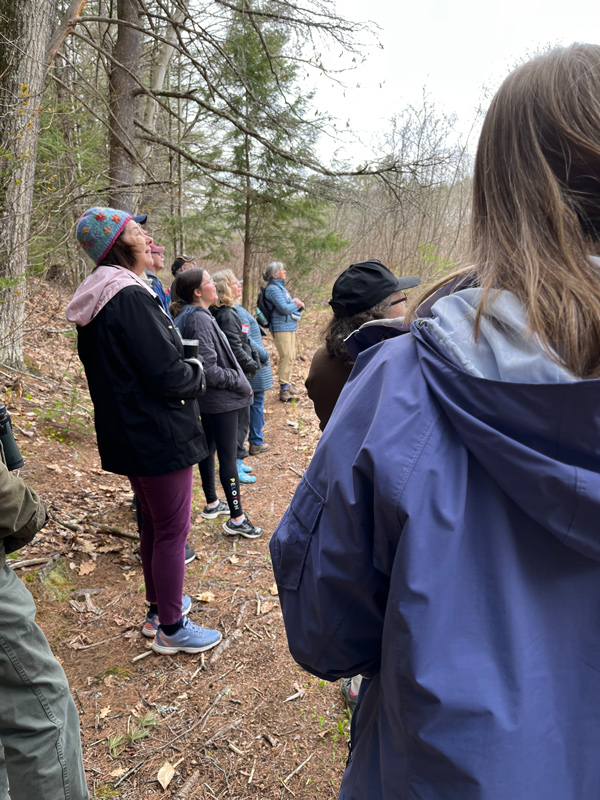Conservation Commission Past Events
CREA (Cornish Recreation and Education Area)
On May 7 a group of 15 folks interested in learning more about resident, and newly arriving migrant birds, rambled through the diverse CREA habitats to find 23 different species. Highlights included watching 7 newly hatched goslings swim in the beaver pond with their protective parents, feeding Tree Swallows swooping among us and back over the water to catch insects, and an up-close view of a perched male Bluebird, several Tree Swallows and a brightly colored Yellow-rumped Warbler all in a row on shrubs at the water’s edge.
A few takeaways…
- Anyone can enjoy our resident winter birds by putting up a feeder or two during the winter months, and even participate in citizen science by joining Cornell’s Project FeederWatch and reporting your species at feederwatch.org
- Early morning is the best time to hear and see the spring/summer birds (it’s quiet and cool)
- Ruby-throated hummingbirds spend the summer with us, put up a feeder and enjoy the show!
- Acquire a field guide, and/or a birding app, binoculars, then invite a few friends to join in, and you are on the path to a fun new hobby!
- The CREA land has a nice diversity of birds because the habitat is so varied; it includes a mix of mature deciduous and pine trees (thrushes, warblers and vireos), scrub/thickets (catbirds, sparrows), stream/wetland/pond (geese, ducks, bitterns, red-winged blackbirds), open grassy fields (sparrows, bluebirds) and surrounding hills and ridges (hawks, ravens).
- The songbirds we enjoy from late March-August are mostly migrants flying into NE, and some push to points even further north to breed. Many fly significant distances under ever increasing peril.
- North America has lost ~3 billion birds since 1970, the leading reason is the loss of/or degradation of wintering and breeding grounds, as well as travel rest points on the migratory routes.
There are simple but powerful actions we can take to help:
- Support conservation of critical habitat, participate in Citizen Science
- Keep your cats inside (at least during the breeding season)
- Minimize bird/window collisions (use bird tape and decals)
- Increase bird friendly native plant species in your yard, manage invasives, reduce or eliminate pesticides and insecticides
- Leave dead trees whenever possible for use by cavity nesters and as an insect hotel /food source for the birds
- Support shade grown coffee product (bird-friendly)
Read more about the State of NH’s Birds, A Conservation Guide 2020, available on the web at www.nhaudubon.org


